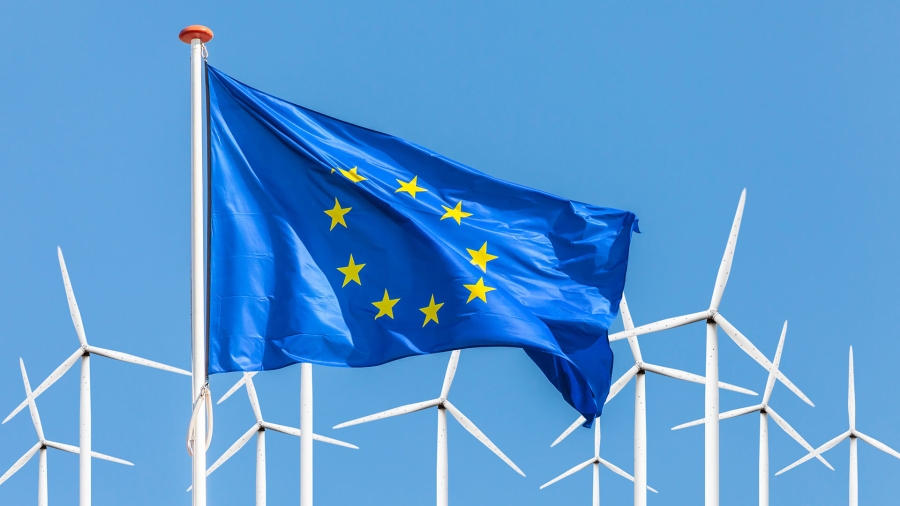
|
Listen to this story: |
In 2024, the carbon and emissions technology sector has demonstrated remarkable resilience and growth, securing a significant $17.7 billion in venture capital (VC) investments. This comprehensive industry overview, created by PitchBook’s Institutional Research Group, reveals the latest trends, technological advancements, and market dynamics shaping the landscape of carbon and emissions tech.
Lithium battery recycling startups drew the largest share of capital—as they continue to navigate varying regulations and standards for battery use, development, and disposal. These companies, like others in the vertical, are consistently affected by changing global policy and political landscapes.
Key Findings:
- Record VC Investments: The carbon and emissions tech sector attracted a record $17.7 billion in VC funding across 1,133 deals in 2023, surpassing previous years’ figures. This surge underscores the growing investor confidence and the critical importance of sustainable technologies in addressing climate change.
- Technological Landscape: The report categorizes the sector into several key technology areas:
- Direct Air Capture (DAC): Technologies designed to capture CO2 directly from the atmosphere.
- Point Source Carbon Capture: Capturing CO2 from exhaust and flue gas streams.
- Biological Carbon Capture: Using biological methods to sequester carbon in soils, oceans, and other environments.
- Carbon Utilization: Converting captured CO2 into valuable products such as fuels, chemicals, and construction materials.
- Carbon Accounting & Analytics: Software platforms for monitoring and analyzing carbon emissions.
- Voluntary Carbon Market (VCM) Infrastructure: Platforms managing voluntary carbon credits and integrating them into financial products.
- Carbon Fintech & Consumer Tech: Integrating sustainability into financial products and services.
- Market Resilience: Despite challenging market conditions, the carbon and emissions tech sector has shown resilience. Median pre-money valuations for companies remained stable, varying between $13.6 million and $15.0 million from 2021 to 2023. The Q1 2024 median deal size was $4.2 million, indicating continued investor interest.
- VC Deal Activity: The report highlights that the VC deal value for Q1 2024 was $2.7 billion, marking the lowest quarterly value since Q1 2021. However, the sector continues to attract substantial investments, particularly in high-potential areas such as lithium battery recycling and DAC.
- Exit Activity: The sector’s exit activity peaked at $3.8 billion in 2021 but saw a decline to $1.9 billion in 2023. This trend aligns with overall market conditions, reflecting the cyclical nature of VC investments and exits.
- Industry Drivers: Several factors drive investment in carbon capture, utilization, and storage (CCUS) technologies:
- Tax Incentives: In regions like the US, tax credits per ton of CO2 captured encourage investments in DAC and other carbon capture technologies.
- Government Funding: Significant funding from initiatives like the US Bipartisan Infrastructure Law supports the development of DAC hubs, fostering innovation and scaling.
- Market Shifts: The increasing demand for high-integrity carbon credits benefits technologies that offer straightforward verification and measurement.
Sector Segmentation and Investment Trends
- Carbon Tech: Encompasses technologies for capturing, utilizing, and measuring carbon emissions.
- Industry Applications: Includes applications in various sectors such as manufacturing, energy, and construction.
- Built Environment: Focuses on sustainable construction, heating and cooling, and building energy efficiency.
- Land Use: Involves technologies for carbon sequestration in soils and land management practices.
Top Investors
The report also lists the top VC investors in the carbon and emissions tech sector since 2018, highlighting their investment strategies and focus areas. Leading investors include Climate Capital, Lowercarbon Capital, and SOSV, among others.
Related Article: Google and BlackRock Partner to Develop 1 GW Solar Capacity in Taiwan, Boosting Regional Decarbonization Efforts
The 2024 Carbon & Emissions Tech Overview reveals a dynamic and evolving sector that continues to attract significant VC investments. With a strong focus on innovation and sustainability, the industry is poised to play a crucial role in global efforts to combat climate change. The comprehensive analysis provided in this report offers valuable insights for investors, policymakers, and stakeholders looking to navigate the complexities of the carbon and emissions technology landscape.
Read the full report here